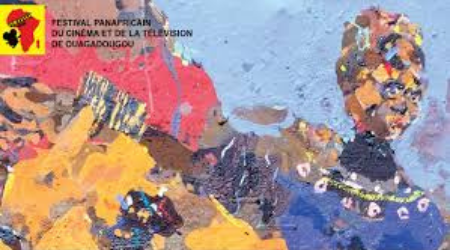Two recent events taking place a world apart, have propelled my thoughts back several decades. They speak to the interconnection of art, culture, and politics. What links them are a film festival and the synchronicity of time.
One is the publication of Pulitzer Prize-winning author Alice Walker’s diaries, Gathering Blossoms Under Fire. The other is the sentencing, in absentia, of life imprisonment for Blaise Compaore, former president of Burkina Faso.
The year was 1992 when I represented Sony Pictures as part of a delegation to the Panafrican Film and Television Festival of Ouagadougou, capital of Burkina Faso. More widely known as FESPACO, the festival, founded in 1969 and held every other year, accepts in competition only films by African filmmakers and chiefly produced in Africa.
Our delegation was led by the tall and regal Ayuko Babu, co-founding executive director of the Los Angeles Pan African Film Festival. It included the late film director John Singleton (Boyz N the Hood), Ghanaian actor Akosua Busia (The Color Purple), Walker, singer/songwriter Tracy Chapman, actor CCH Pounder (NCIS New Orleans) and her husband, art museum founder/curator Boubacar Kone.
Diasporic Africans from all over the globe converged on Ouaga’s streets by the thousands. The atmosphere was festive, even as the air was choked with thick dust from the encroaching Sahel and the smoke of countless outdoor cooking fires.
One thing I noticed was how well-traveled were these African arts creators. They moved all over the continent, the Caribbean, and Europe attending conferences and festivals. Most of them spoke several African and European languages as they marketed films, made deals, renewed old friendships, and forged new ones.
The festival organized showings all over the capital and people thronged to see their favorites. The screening of the latest film by Ousmane Sembene, beloved as the father of African cinema, was so highly anticipated that people packed the cinema and sat in the aisles. In the countryside, nighttime crowds gathered outdoors to see films projected on sheets hung against mud walls.
One evening, we were invited to the president’s mansion for a VIP reception. Feelings among our delegation were torn. The rumor among the Burkinabe was that Compaore was complicit in the 1987 plot that killed their young and charismatic revolutionary leader, Thomas Sankara.
Sankara and Compaore were childhood friends, close as brothers. Compaore stood by his side as Sankara launched bold initiatives like mass vaccinations, banning female genital mutilation and polygamy, lowering the salary of top public servants, and denouncing foreign aid as an extension of colonial control.
But when Sankara was murdered, Compaore assumed control for the next 27 years. He was himself ousted by a coup in 2014 and sought asylum in Cote d’Ivoire where he still resides. And now a military court has pronounced a life sentence that few think he will ever serve.
Most of us went to the reception that night. It was a chance to network with some of the cream of the African film world amidst the sumptuous buffets and sartorial finery. We were special guests. A large part of the cost of our trip was sponsored. Was there a point to snubbing the reception after we’d already accepted the festival’s largess?
Perhaps it was also the curiosity of seeing a lethally treacherous friend up close and in the flesh.
Whatever the rationale, it did not prevent a feeling of bilious distaste. There was an undercurrent of unease in the air, like everyone at the reception was thinking the same thing. We decamped early. Alice and Tracy did not attend at all.






